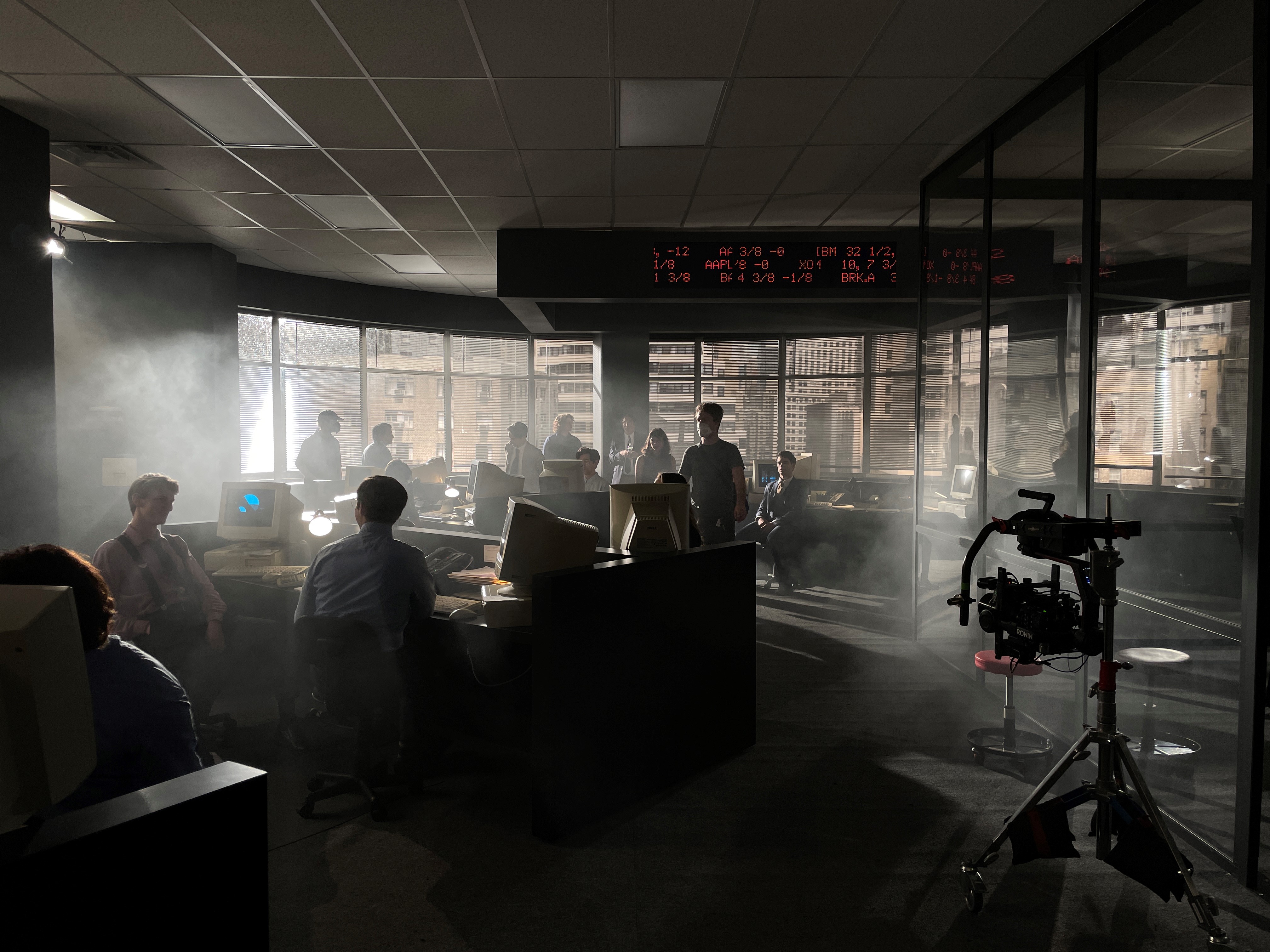Capturing ‘The Monster of Wall Street’ with Canon Cameras
Using in-camera transitions, we seamlessly married present day interviews with recreated sequences

NEW YORK—Directed by Academy Award Nominee Joe Berlinger, our four-part Netflix series “Madoff: The Monster of Wall Street” delves into the now infamous crimes of Bernie Madoff, a Wall Street titan whose fraudulent tactics cost investors billions of dollars before his eventual downfall and arrest amid the 2008 financial collapse. Through interviews with victims, whistleblowers, investigators, and Madoff’s former employees, the series examines his psychology and the innumerable systemic failures that created fertile ground for Madoff’s decades-long grift.
Madoff was a fraud. He created the trappings of a legitimate operation, but when investigators peeled back the curtain, it was all fake. We wanted to play with that concept in our series, so we created a staged replica of Madoff’s downtown Manhattan offices in the iconic Lipstick Building skyscraper.
Two Cameras, Two Styles
Using in-camera transitions, we seamlessly married present day interviews with recreated sequences, all filmed in exactly the same space with actors and interviewees sharing the same set. We wanted the series to fluidly flow back and forth between the two styles of filming, employing visual slights of hand to echo the way Madoff’s financial stage-craft allowed his long con to flourish and deceive so many.
We filmed the series with two Canon C500 Mark II cameras. The A-camera lived on a Ronin 2 with Cooke 2x Anamorphic prime lenses, most often a 50mm or 75mm, sometimes a 100mm. The B-camera I’d use for graphic plates and lock-offs, as well as the tighter second angle for interviews.
One surprising trait of the C500 Mark II is that you are able to use Super35 anamorphic lenses with the camera, despite it being a full frame sensor. If we stayed tighter than 40mm we could shoot S35 lenses without vignetting, and with the full frame sensor also pull in a little extra anamorphic texture on the edges of the frame.
The series required an intense level of planning in pre-production to make our stage build work and sell the illusion. It also required a lot of creative problem solving on our actual shoot days as well to map out those in-camera transitions as we went. Not only was every interview lit and composed to be a standalone interview, every interview was also composed and lit to be the A side of an A to B shot which would transition into an entirely different time/place/scene/frame rate in recreation. Without revealing how we created those transitions, I’ll just say we used a combination of reflections, variable frame rates, real time lighting changes cued off a dimmer board, and camera movement.
IN-CAMERA TRANSITIONS
VFX assisted us with some of the transitions that were impossible to achieve in-camera. But even with those I was hyper intentional to structure shot sequences so they always had clean ins and outs for easy stitching.
That meant foreground wipes with extras, pans across office columns, or pulling back from blown-out windows, etc. I’d start and finish all our recreated shots so they could be seamlessly blended in the edit. That kept our VFX additions to a minimum since many of those cuts worked as normal edits without additional assistance.
Keeping the series visually fresh while shooting it all in that relatively confined set space was our biggest challenge. Even though it was a sizable stage build with tremendous attention to detail, we had to max out every square inch of the set given the many recreation scenes and many interviews.
That was also what made this series such an engaging creative challenge: One of the best parts of production is working within a defined set of limitations—then it’s reliant on your creativity and every other department’s creativity to bring ideas that will elevate the work beyond those limitations.
For more information visit www.usa.canon.com.
Get the TV Tech Newsletter
The professional video industry's #1 source for news, trends and product and tech information. Sign up below.
Jeff Hutchens is a director and Emmy-nominated cinematographer whose cinematography credits include feature documentaries (“American Pain,” “The Armor of Light”) and numerous top-ranked series for Netflix, Showtime, HBO and CNN. He recently directed “Remember This,” a narrative feature starring Academy Award Nominee David Strathairn.
